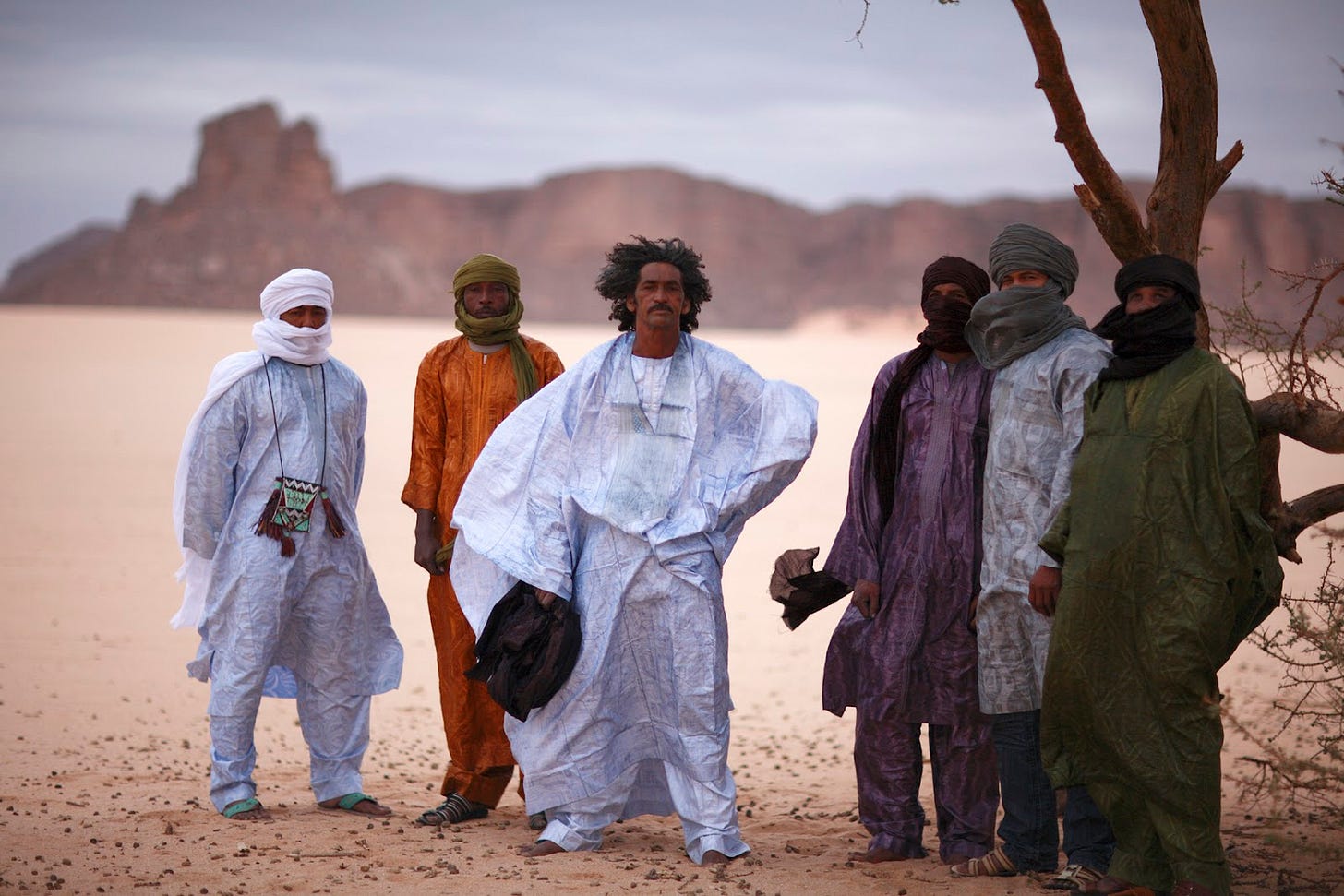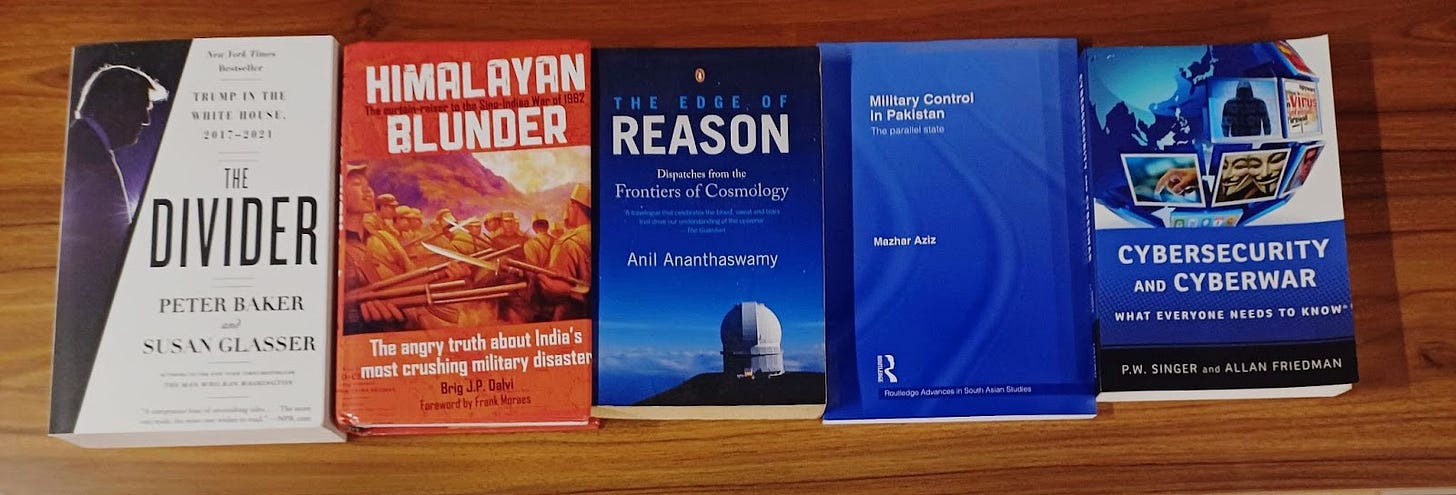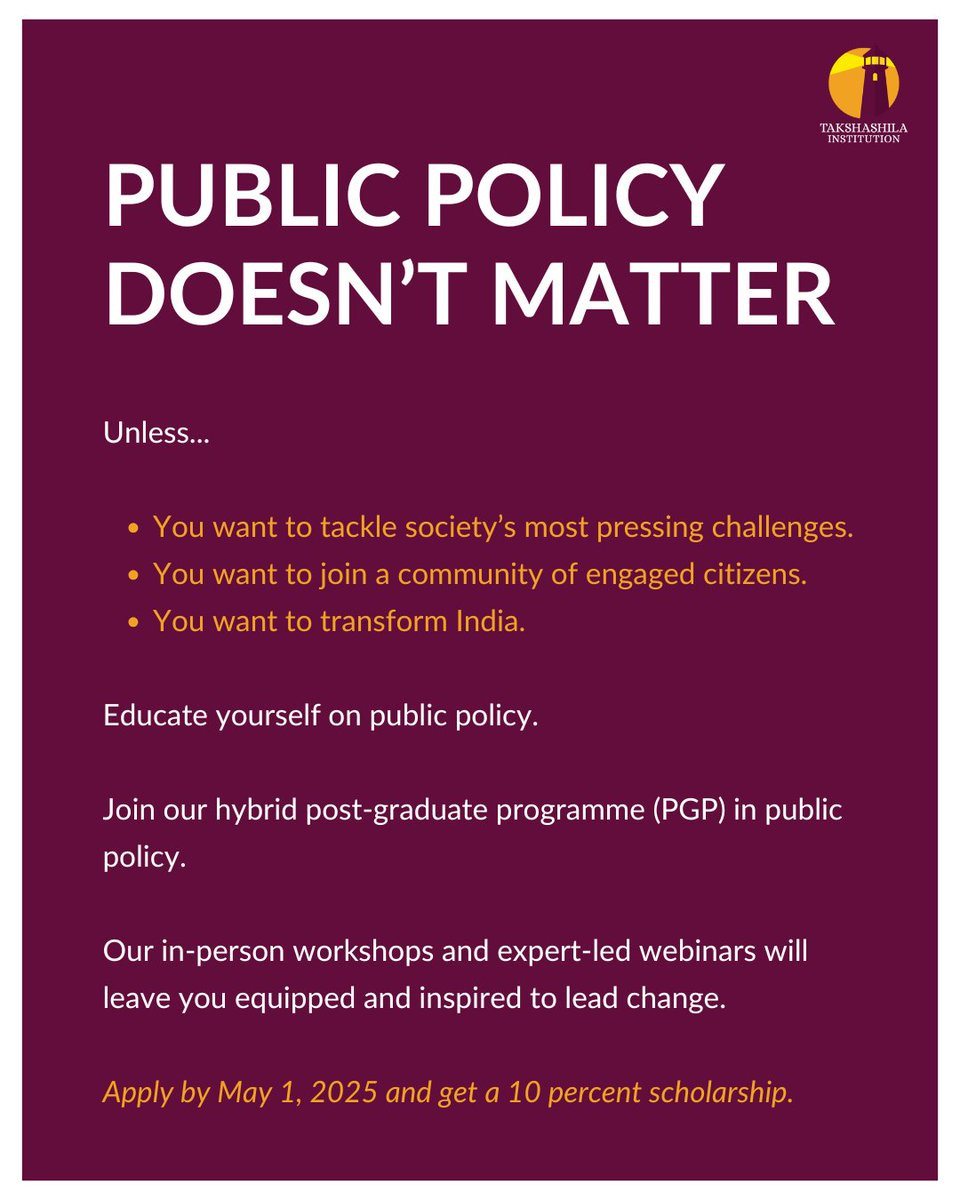A Tamashek Lament for Traffic...
At the 54th Annual Grammy Awards in 2012, a band little known to global audiences stepped up to the stage to claim the Grammy for the World Music Album for that year: Tinariwen.
In the Tamashek language spoken by the members of this nomadic band, Tinariwen translates to ‘[The People of the] Deserts’. This ragtag (by their own admission) group of young men first convened in the late 1970s over a shared desire to express their feelings around “homesickness, longing, exile from their homeland”, which soon found expression in a genre that many would give them credit for pioneering, ‘desert blues’.
As regional conflict and lack of economic opportunity saw them displaced across refugee camps of Libya and Algeria in the 1980s, they found an eventual affinity to music, and first formed a band to perform at weddings of similarly displaced members of the Tuareg community.
Fast forward to three decades and four albums later, they win a Grammy for their album, Tassili (named after a series of canyons by the Algerian border with Libya) described by renowned music magazine, Pitchfork, in the following manner: “The predominant feeling that comes out of them is longing, for home, for peace, for old friends, for a way of life whose place in the modern world is uncertain.”
It is no coincidence, dear reader, that these themes are near identical to those that first brought them together in 1979. In an interview with Eyadou ag Leche, the band’s bass player (cited in the New York Times) he notes: “We wanted to go back to our origins, to the experience of ishumar,” (the Tamashek word that derives from the French, chômeur, or unemployed).
Takshashila Co-Founder and Director, Nitin Pai, has similarly returned to a theme that he has lamented over in previous writings: urban congestion - but this time bearing advice from Prof. Donald Shoup, considered a leading scholar on parking policy.
In his latest column in The Mint, Nitin borrows two broad ideas from Prof. Shoup that he believes should be reflected in India’s parking policy:
“One, set the right price for street parking. Two, use parking-fee revenues to pay for local public services.”
Further, he highlights the crux of India’s parking woes and why governments should care more:
The reason there are too many cars parked on Indian streets is that parking is free. But free parking exerts severe economic and environmental costs. It is also an unconsidered and undeserved transfer of social wealth to its richer citizens. It is astounding how governments running deficit budgets due to massive social spending commitments and a small revenue base are giving away public wealth to anyone on a first-come-first-served basis. Every city in India can easily raise 5% more revenue by collecting parking fees just in its busiest areas.
For a more fulsome read of his analysis on this persistent national ill, follow this link.
P.S.: For those interested in listening to the title track of Tassili, Imidiwan Ma Tennam, follow this link.
A 21-Gun Salute…Pakistan Wears Its Heart on Its Sleeve?
Turkish President Recep Tayyip Erdogan’s visit to Islamabad (where he was received by Pakistan's Prime Minister Shehbaz Sharif and President Asif Ali Zardari and greeted at Nur Khan Air Base in Islamabad with a 21-gun salute) has Research Analyst for Pakistan Studies, Aishwaria Sonavane reflecting on the bilateral relationship between both nations.
In her recent Op-Ed in the Deccan Herald, Aishwaria argues:
“…beyond the ceremonial optics lies a more nuanced relationship — one that signals both practical cooperation and ideological affinity.”
She reflects on the recent Turkish visit (at Islamabad’s invitation) and draws attention to the significant defence ties and noteworthy multilateral engagements between both countries.
What can and should India do amidst these developments? To read her analysis in full, curious reader, follow this link.
The Paris AI Summit…A (Quiet) Success.
In her recent Op-Ed in First Post, High-Tech Geopolitics Research Analyst, Shobhankita Reddy, labels the Paris AI Summit a “quiet success”.
Among other signs, she points to the renewed focus on how AI will realistically impact economies, a Summit statement that calls for a more-democratically informed AI-development process and the multilateral nature of the convening as symbols of its success.
If you’d like to read her analysis in full, follow this link.
The Marvel of Mapping: All Things Policy Episode of the Week
This week’s All Things Policy (ATP) episode we’d like to highlight is an insightful conversation between historian and author of Lords of Earth and Sea, Anirudh Kanisetti, Takshashila Chief Operating Officer, Sowmya Prabhakar and Takshashila Geospatial Studies Research Analyst, Swati Kalyani.
Together, they explore the practices around mapping in India of old including the nature of porous borders and structures of societies of the past.
To be a virtual participant in their discussion, follow the link provided.
Takshashila Tabletop Trove!
As many of you know, this section of Dispatch is intended to be a digital repository of the books that sit in Takshashila’s physical office space in Bengaluru, Karnataka. So what’s this week’s book theme? Read on, curious reader.
This week’s theme is not entirely novel, but given the many relevant themes that have re-surfaced, we are re-sharing a previously shared theme: Drawing Blurry Lines. We line with this, we recommend:
The Divider: Trump in the White House, 2017-2021 (Peter Baker & Susan Glasser)
Himalayan Blunder: The Curtain-Raiser to the Sino-Indian War of 1962 (Brig. J.P. Dalvi)
The Edge of Reason: Dispatches from the Frontiers of Cosmology (Anil Ananthaswamy)
Military Control in Pakistan: The Parallel State (Mazhar Aziz)
Cybersecurity and Cyberwar: What Everyone Needs to Know (P.W. Singer & Allan Friedman)
…But Wait! There’s More!
Curious about how you can make a real impact in the world of public policy, dear reader?
Our 48-week Post Graduate Programme in Public Policy is designed for people like you—passionate, curious, and ready to dive deep. With a flexible online curriculum and in-person workshops across India, it may just be the perfect mix of theory and action.
Find more information here.
This edition of the Dispatch was written by Kripa Koshy, Programme Manager for Takshashila’s Post Graduate Programme in Public Policy.






